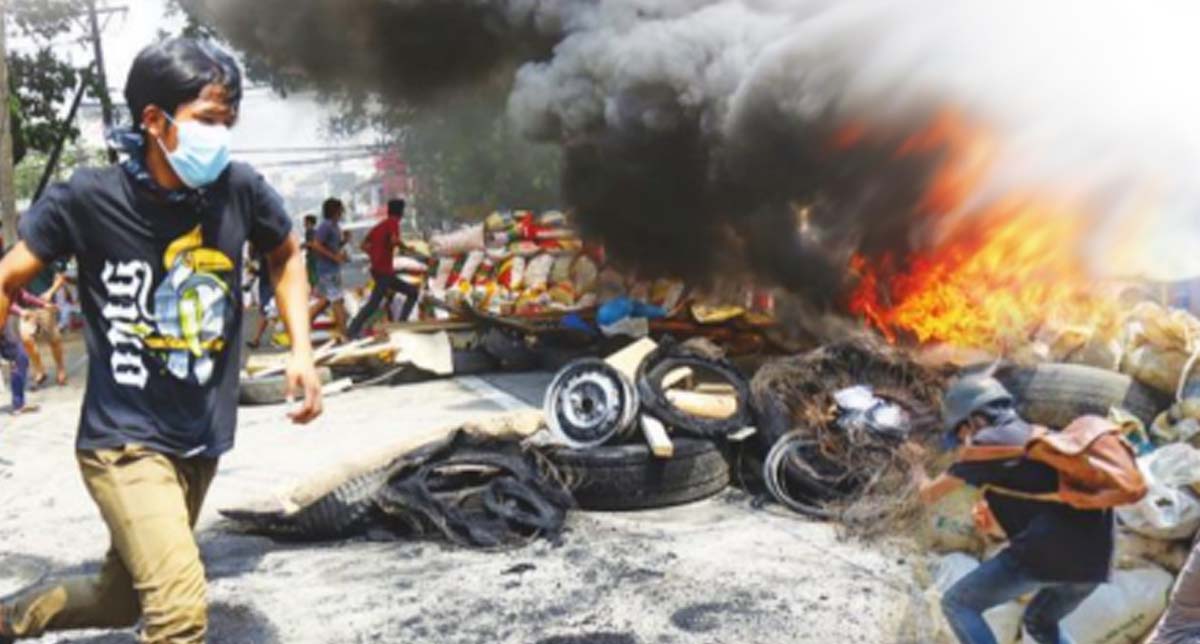UN Warns of Myanmar’s ‘Worst Violence’ Amid Junta Takeover Turmoil
<p>Amid Myanmar’s surging conflict and unprecedented violence following the military’s seizure of power in 2021, the United Nations expresses grave concerns over the dire implications for human rights, essential freedoms, and the basic necessities of millions of individuals, alongside the alarming repercussions reverberating throughout the region, as conveyed by UN officials. Addressing the UN Security […]</p>

UN Warns of Myanmar’s ‘Worst Violence’ Amid Junta Takeover Turmoil
Amid Myanmar’s surging conflict and unprecedented violence following the military’s seizure of power in 2021, the United Nations expresses grave concerns over the dire implications for human rights, essential freedoms, and the basic necessities of millions of individuals, alongside the alarming repercussions reverberating throughout the region, as conveyed by UN officials.
Addressing the UN Security Council, Assistant Secretary-General for political affairs, Khaled Khiari, underscored the escalating toll on civilians amidst reports of indiscriminate airstrikes by Myanmar’s armed forces and artillery bombardments by various factions. The nationwide conflict erupted after the military deposed the elected government of Aung San Suu Kyi in February 2021, quashing widespread peaceful protests advocating for a return to democratic governance.
Driven by the military’s crackdown, numerous youths sought refuge in remote borderlands, aligning with ethnic guerrilla forces entrenched in decades-long battles with the army, striving for self-rule. Despite the military’s superior weaponry and manpower, its attempts to suppress the resistance have faltered. Over the past five months, significant setbacks have been suffered, with the army losing ground in northern Shan state, ceding territories in Rakhine state, and encountering heightened hostilities elsewhere.
The principal pro-democracy faction in Myanmar disclosed that its armed wing launched drone strikes on Naypyitaw’s airport and a military base. However, the military claims to have intercepted and neutralized the drones mid-attack. While independent verification of the incident remains elusive, the military’s acknowledgment of the confrontation in a heavily fortified area suggests a shift in the power dynamics.
Although not addressing the recent attack, Khiari highlighted the intensifying clashes between the Arakan Army and the military in Rakhine State, characterized by an unprecedented surge in violence. The Arakan Army, seeking territorial expansion into areas inhabited by the Rohingya minority, has reportedly gained control over central Rakhine, exacerbating the plight of the Rohingya Muslims, historically persecuted in Myanmar.
Amid the turmoil, Khiari urged all stakeholders in Rakhine to advocate for the Rohingya community, ensnared in the conflict and subjected to severe constraints on their mobility, citizenship rights, and heightened vulnerability to abduction and forced conscription.
The ramifications of the crisis extend beyond Myanmar’s borders, exacerbating tensions in key border regions and fostering a conducive environment for illicit activities, including human trafficking and drug production. What initially appeared as a regional security concern has burgeoned into a global humanitarian crisis, with Myanmar at the epicenter of methamphetamine and opium production and a proliferation of cybercrime syndicates.
Senior UN humanitarian official Lisa Doughten underscored the dire humanitarian fallout, with 12.9 million people, a quarter of Myanmar’s population, facing food shortages, particularly impacting vulnerable groups such as children and expectant mothers. The healthcare system is also reeling under immense strain, exacerbated by dwindling medical supplies. Urgent funding is imperative to alleviate the plight of millions, with the humanitarian appeal for 2023 remaining significantly underfunded, leaving over a million individuals bereft of assistance.
Echoing the UN Secretary-General’s plea for a concerted international response, both Khiari and Doughten emphasized the imperative for neighboring nations to leverage their influence in facilitating humanitarian aid delivery, de-escalating violence, and fostering a political resolution.
In pursuit of these objectives, Guterres intends to appoint a new UN special envoy for Myanmar, tasked with engaging with regional blocs like ASEAN and other stakeholders to advance peace efforts. Despite international endeavors, the Myanmar military’s reluctance to engage constructively impedes progress towards a peaceful resolution.
However, affirming their commitment to addressing the crisis, UN ambassadors underscored the urgency of not overlooking Myanmar’s plight, condemning external interference exacerbating the situation for geopolitical gains.








